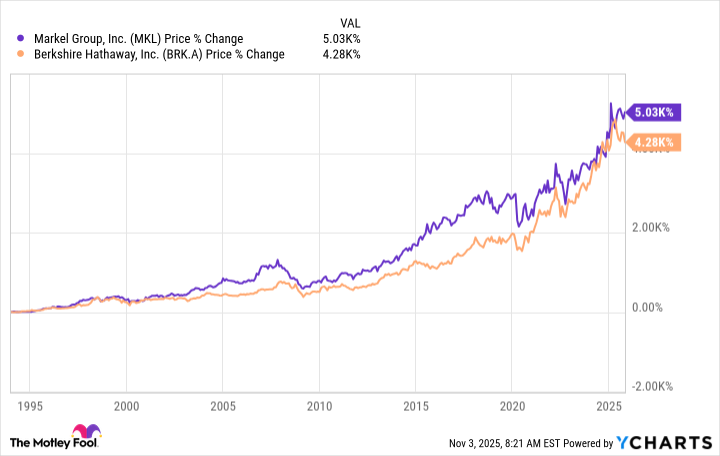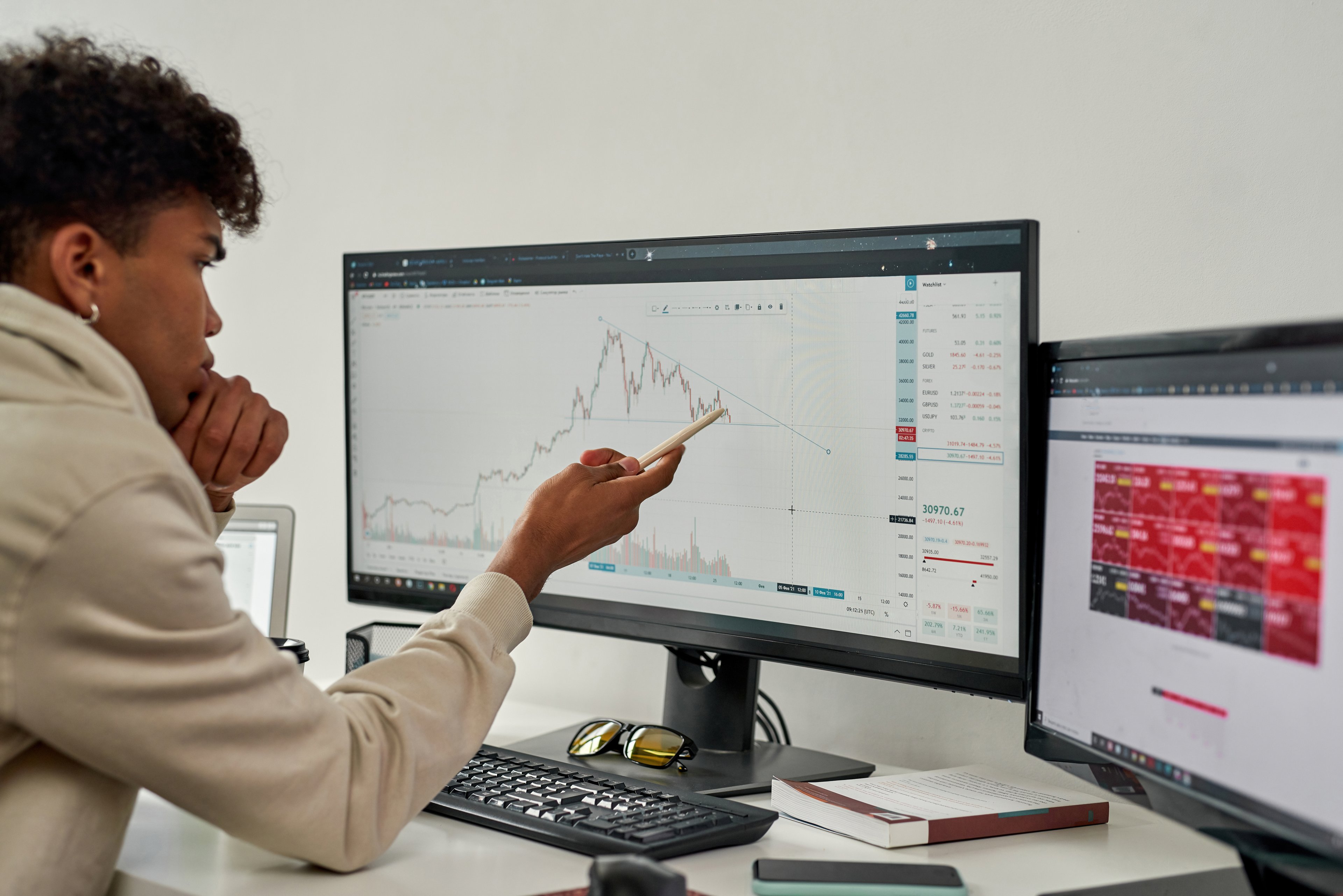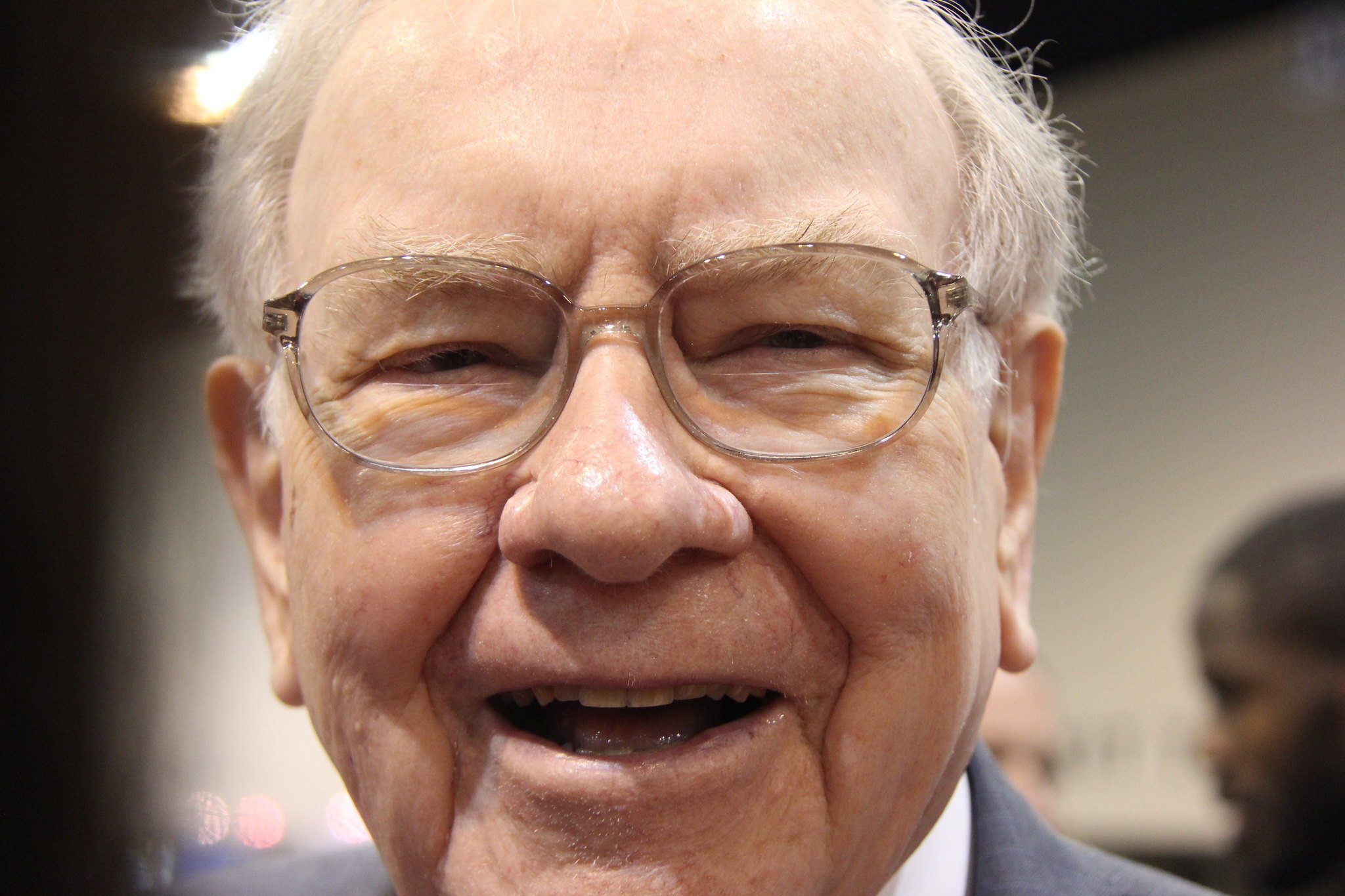The final countdown has begun as investors await the retirement of Warren Buffett from the CEO position at Berkshire Hathaway (BRK.A +0.09%)(BRK.B +0.15%). It is a big deal, though maybe not as big as some investors are worried it could be. That said, there's another company that is less well-known but that uses the same basic business model as Berkshire Hathaway.
Could Markel Group (MKL 0.25%) be a good alternative to Berkshire Hathaway?
What's Markel's business model?
Warren Buffett blazed the path for the business model that both Berkshire Hathaway and Markel use. The big-picture story is fairly simple. Both companies act as investment vehicles for the management teams that run them. They each have a sizable number of operating businesses that act largely independently and also make investments in publicly traded companies. In some ways, they are run kind of like mutual funds.

Image source: The Motley Fool.
With Berkshire Hathaway, you are, effectively, giving your money to Warren Buffett and his team to invest on your behalf. With Markel, you are doing the same thing, but instead, you are giving the cash to Tom Gayner and his team. This is where an important difference comes up. You've probably heard of Warren Buffett and might even know a little bit about Buffett's investment approach. But you've likely never heard of Tom Gayner.
Markel Group, despite a $24 billion market capitalization, largely flies under Wall Street's radar screen. By comparison, Berkshire Hathaway has a $1 trillion market cap, and investors hang on every word that comes out of Buffett's mouth. Given the long-term success of Berkshire's stock, that's understandable. But Markel's stock actually has an even better long-term track record!
Data by YCharts.
Things are changing for both companies
That long-term graph makes Markel appear like the real winner, but over the past 10 years, it hasn't done nearly as well as Berkshire Hathaway. And Markel has been shaking things up a little bit as a business, trying to fine-tune its model. That's not a bad thing, noting that it continues to use the same basic approach. This is a refinement, not a change of plans. Notably, however, over the past year, Markel has strongly outperformed Berkshire.

NYSE: MKL
Key Data Points
The reason for the recent performance disparity is most likely the planned retirement of Buffett as CEO at the end of 2025. He is handing the CEO spot off to key lieutenant Greg Abel. That has some investors worried that the company will be operated differently in the future than it has been in the past.
Since Abel is not Buffett, Berkshire Hathaway will be different in the future. But Buffett is going to stay around as the chairman of the board of directors. He's still Abel's boss. And Buffett has trained Abel for decades, so he's steeped in Buffett's ways. It is unlikely Abel is going to throw away a process that works.

NYSE: BRK.B
Key Data Points
Meanwhile, there's a risk in switching from the larger Berkshire Hathaway to jump aboard Markel. Simply put, Markel lacks the portfolio diversification that Berkshire has and thus, it is likely to expose investors to more risk. Of course, you have to juxtapose that with the opportunity the smaller company has to grow. Berkshire is so large that it is much harder to move the top and bottom lines.
Which is better for you?
First off, if you are looking to get out of Berkshire Hathaway because Buffett is retiring, you might want to hold off. Things aren't likely to change as much as you may fear. Greg Abel probably deserves the chance to prove his ability before you jump ship.
That said, if you are concerned by the massive scale of the Berkshire business, you might want to consider stepping into Markel. Just go in with the understanding that the smaller company may be able to grow faster, but the ride could be a lot bumpier.







